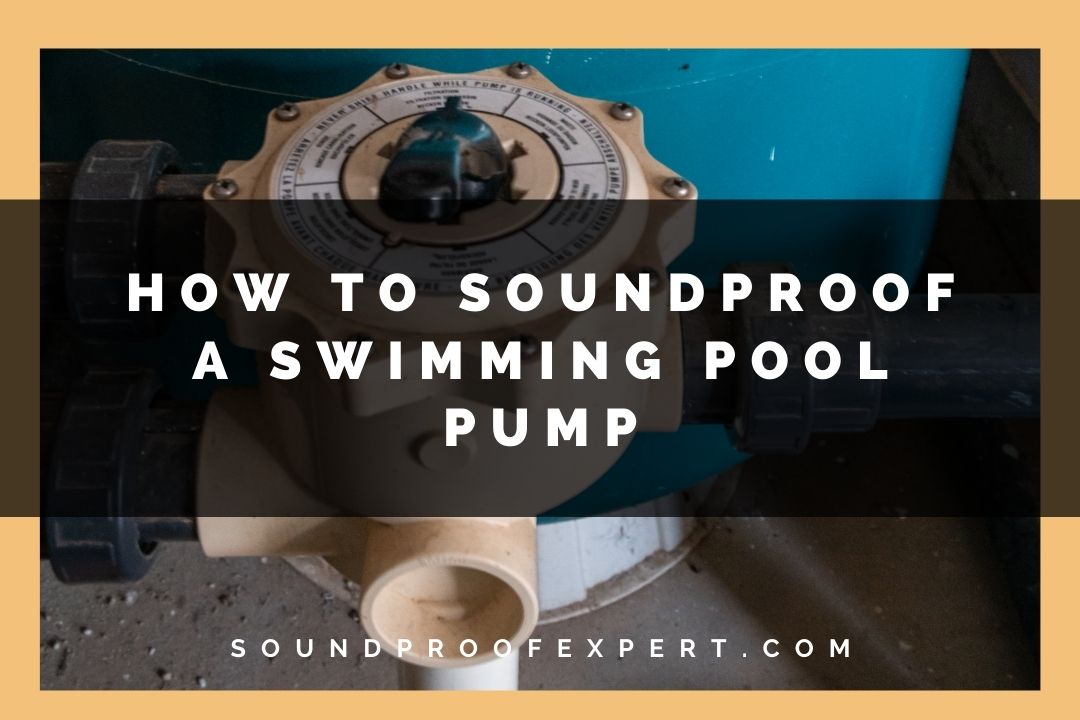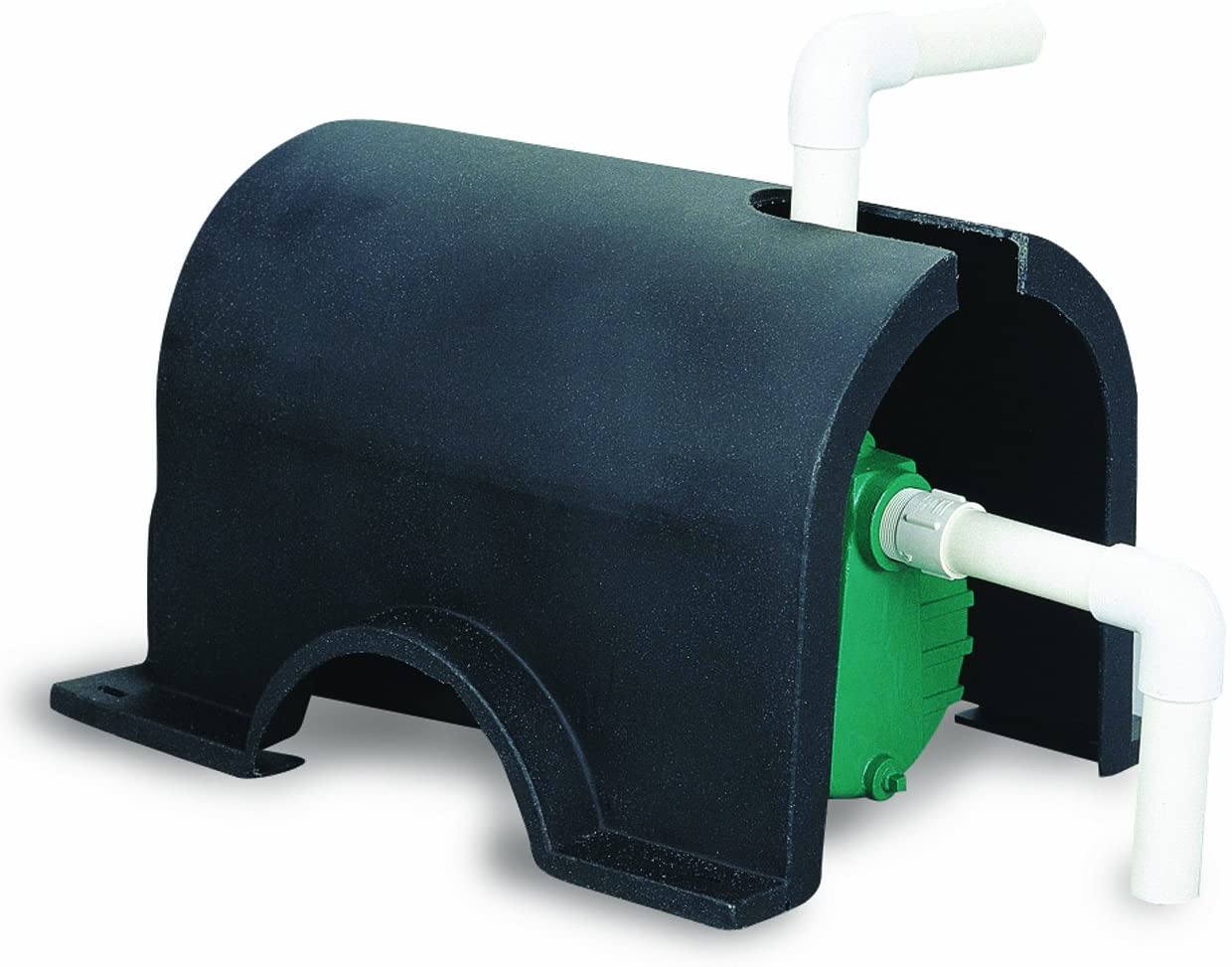
Have you ever been out grilling in your backyard only for your peace and quiet to be disturbed by a strange grinding and gurgling noise? How long did it take you to realize that it was your swimming pool pump making that noise?
There is a very good chance that as soon as you came to that conclusion, the next thing you thought about was how to soundproof a swimming pool pump, right?
Yes, pool pumps make a lot of noise sometimes. In fact, your pool pump will probably be running for about 8 hours every day to ensure that all the water in your pool is cleaned and circulated.
For a huge chunk of that period, it will be making some noises, and these noises can be rather irritating not only to you but to your neighbors as well.
So, what can you do to soundproof your pool pump? Create a noise barrier between your pool’s pump and the outside world.
It’s that simple. Here are some practical instructions on how to soundproof a swimming pool pump.
Understand the Nature of Pool Pump Noises
As is the case with most problems, to find the most effective solution, it is advisable to start by trying to understand as much as possible about the problem in particular.
- The operational noise: Almost anything with a motor will have some kind of operational noise whenever you start it up, and your pool pump is not an exception. Unfortunately, there isn’t much you can do to prevent this noise. However, you could ask your local pool company if they have any pool pumps that come with additional noise-cancellation to minimize the noise your pump makes when it starts up.
- The humming vibration noise: As the pump runs, it will create some kind of humming vibration noise that is a result of it coming into contact with the surface on which it’s placed. This annoying noise will remain as long as the pump is running.
Thankfully, however, you can do something about that humming, vibration noise.
Tips on How to Soundproof a Swimming Pool Pump
The first thing you need to know here is that you are going to have to build some sort of cover for your pool pump. It’s this cover that will help keep that noise contained and to a minimum.
That being said, the materials you will need depends on the kind of pool pump you have as well as the size. However, typically, this is what you would have to buy:
- Pool pump cover
- A number of silicon mats
- Acoustic foam padding
- Fast fix glue
- Some nails
Since these things don’t typically cost that much, it’s best to double up on the purchases. You know, just in case you end up needing more than you think.
Step 1: Place the Silicone Mats
![]()
These silicone mats come in a variety of options, but what you want is something that will soak up the vibrations caused by your pool pump.
Placing these silicone mats beneath the pool pump will ensure that the irritating humming, vibration noises stemming from the contact it has with the ground on which it stands is minimized.
Two to three layers will do just fine. You don’t want to make that mat padding too high, destabilizing the pool pump placement.
Step 2: Attach Acoustic Foam to Your Pool Pump Cover

While the pool pump cover probably has some noise cancellation properties, it is nowhere near enough to be the only thing you need. That is why you need to line it with acoustic foam.
Thankfully, the process is simple enough. All you have to do is take your fast fix glue and plaster the inside of the pool pump cover with the acoustic foam you bought. How many layers you stick on there will depend on how thick the foam is. If you bought relatively thin foam, then you might want to do two or three layers. Otherwise, just one layer will do.
Once it’s stuck in there well enough, you need to drill a few nail holes into the cover and foam. This is because the heat from both the environment as well as your pool pump can get the glue unstuck over time, and you would have to do this all over again.
Step 3: Reassemble the Unit
You will have to place the cover on top of the pool pump well to try and minimize the noise as much as possible.
Unfortunately, you won’t be able to fully cover it because you need to leave some room for unhindered airflow otherwise your pool pump will get too hot and then you will have a whole new set of problems that involve buying a new pump.
That is all you need to do to soundproof your pool pump. That being said, there are some maintenance steps that you can take to ensure that your pool pump isn’t as noisy the older it gets.
Maintenance Tips to Reduce Your Pool Pump Noise
Here are some regular maintenance tips you can employ:
- Regularly clean the debris from the pool pump debris basket
- Always make sure there is enough water in your pool
- Be sure to regularly clean your pool impeller and ensure that there are no clogs
- Make sure that the pool pump and the filter are level. Sometimes, uneven installation could be causing too much vibration
If, for some reason, the pool pump is still too noisy, then you might have a mechanical issue that calls for the replacements of parts such as bearings. If you are handy, you can do this yourself, but for the most part, it’s best to have a professional do it for you.
If you have been looking for tips on how to soundproof a swimming pool pump so you and your neighbors can leave in relative peace and quiet, now you have the most practical steps to take.
Remember, however, sometimes, no matter how much you try, the problem could be the pool pump itself, and it might need replacing for a newer, more efficient, and quieter option. But ensure to try these measures first before taking such drastic steps.
